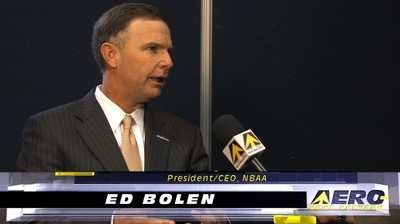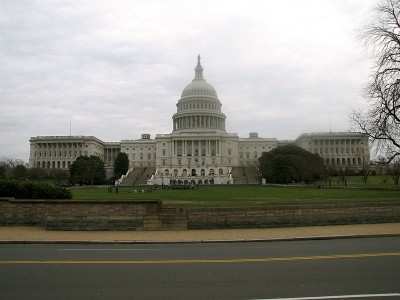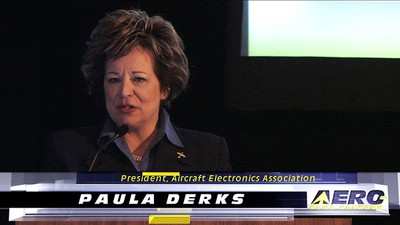But Associations Say Continued Vigilance Needed, Member
Mobilization Was Key To Outcome
As Congress and the White House finalized a package to raise the
nation's debt ceiling, NBAA President and CEO Ed Bolen said
industry mobilization was important for keeping the bill free of
proposals targeting industry – and that sustained vigilance
would be needed as debt-ceiling developments continue to
unfold.

"As everyone knows, the recent negotiations over the debt
ceiling have included rhetoric and policy proposals that have
alarmed the business aviation community," Bolen said. "Remarks
denigrating companies that rely on business aviation have been used
to revive proposals for onerous user fees and impromptu changes to
aircraft tax policy."
Bolen noted that, as with previous policy battles confronting
business aviation, it has been critical in recent weeks for people
in the industry to tell their elected officials, as NBAA has been
doing, that the nation's deficit is a concern to everyone, but the
debate over how to address it should not be dominated by
finger-pointing and punitive policies aimed at an essential
American industry.
Throughout the debt-ceiling debate, NBAA Members have used the
Association's online Contact Congress resource and Legislative
Action Hotline to tell lawmakers to oppose onerous proposals for
business aviation, and promote policies that foster the industry's
ability to create jobs, help companies of all sizes succeed,
provide a transportation lifeline to communities with little or no
airline service and support humanitarian efforts.

"It is clear that policymakers heard the clear and unified
message from the Association and its members as the negotiations
progressed," Bolen said. "We thank the business aviation community
for answering our calls to action – their activism has been
critical to shaping a positive outcome for the industry." While
applauding NBAA Members' readiness to advocate for the industry's
interests in the debt-ceiling debate, Bolen emphasized that the
situation is far from resolved.
"The debt-ceiling legislation approved by the White House and
Congress requires policymakers, before the year's end, to offer
measures for reducing the amount government spends, or increasing
the revenues it takes in," Bolen said. "That means our industry
could once again be targeted for new tax or user fee proposals. In
short, we've lived to fight another day, but more battles are
likely ahead, and it will be as important as ever for the business
aviation community to ensure that its voice is heard. We have been
able to count on NBAA Members to do that in the past, and I'm
certain that will be the case going forward."

"While the AEA is breathing a sigh of relief that the debt
ceiling bill finally has been passed without the inclusion of
language calling for user fees and the elimination of the bonus
depreciation program for aircraft and avionics purchases, we
certainly are cautious that lawmakers may try to include that
language yet this fall," said Paula Derks, AEA president.
"We definitely have not heard the last of a user fee scheme or
the prospect of eliminating the popular tax depreciation plan for
buyers of new aircraft and avionics," Derks explained. "This means
the entire general aviation community needs to be on a constant
vigil and ready to react to those proposed fees and/or new taxes.
Again, our community will need to rally together and continue to
educate our elected officials on the importance of this industry to
our nation's economy."
 ANN's Daily Aero-Term (12.19.25): Ultrahigh Frequency (UHF)
ANN's Daily Aero-Term (12.19.25): Ultrahigh Frequency (UHF) NTSB Prelim: Cirrus Design Corp SR22T
NTSB Prelim: Cirrus Design Corp SR22T Classic Aero-TV: The Red Tail Project--Carrying the Torch of the Tuskegee Airmen
Classic Aero-TV: The Red Tail Project--Carrying the Torch of the Tuskegee Airmen Aero-News: Quote of the Day (12.19.25)
Aero-News: Quote of the Day (12.19.25) Airborne 12.17.25: Skydiver Hooks Tail, Cooper Rotax Mount, NTSB v NDAA
Airborne 12.17.25: Skydiver Hooks Tail, Cooper Rotax Mount, NTSB v NDAA





